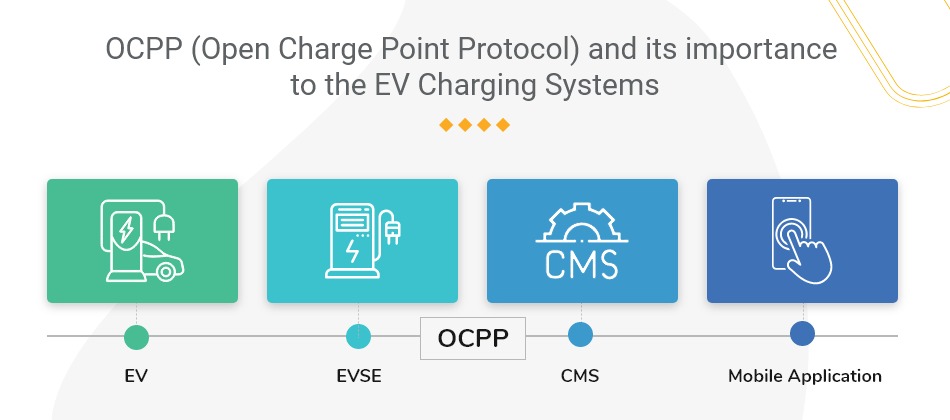
While choosing the right EV charging Solution, there are a lot of things that you need to consider. You might not be aware of is the Open Charge Point Protocol (OCPP). Read this blog till the very end prepared by our team of experts.
What is OCPP?
The Open Charge Point Protocol (OCPP) is an open-source communication standard for EV charging systems and network software Companies. In layman terms, any EV charging station that is OCPP compliant can be configured to run any similarly OCPP compliant software.
In layman terms, it is like buying a mobile handset working with a single operator for the lifetime, before moving further ahead, let’s understand the types of charging networks:
Following are some released versions of OCPP by Open Charge Charge Alliance:
What role does OCPP play in EV charging stations?
OCPP helps the EVSE and CSMS to communicate with each other by creating an open platform. Here are some of the basic operations supported via OCPP.
- Authorization of EV user for the start of charging including the local list of Authorization
- Real-Time Charging session data transfer to the Central Management system.
- Smart Charging
- Remote Unlocking of charging gun
- Firmware management of chargers
- Remote charging Session Control.
What are the key benefits of OCPP?
Here are some key benefits of OCPP for EV Charging Station:
What is the significance of OCPP in Smart Charging?
OCPP provides CSMS the ability to optimally schedule charging of EVs in order to maximize the use of the sanctioned electrical power from the grid. Smart Charging Maximizes the number of EVs that can be charged together within constraints of contract demand. This helps in enhancing stability.
Smart Charging enables pure control over the power and current being supplied to a particular vehicle or group of vehicles at the same time. Also, scheduling the EV charging based on the Time of Day tariff and availability of open access to EV owners and fleet operators can save on cost per unit of energy delivered to the vehicle.
What are the different types of OCPP Protocols?
Key things you need to consider while Implementing OCPP protocol
Final Words
OCPP Compliance for EV charging hardware and software has become inevitable due to the growing dependency on interoperability. It has a great potential to be adopted as an ISO (standard) in the future and EV charging Vendors should seek expert assistance for OCPP implantation and testing and developing a future-ready product revamp.




